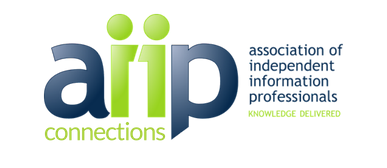We Are AIIP: I’m a Nonprofit Prospect Researcher

By Roger Magnus
In your bio, you describe yourself as a Nonprofit Prospect Researcher. Briefly, what does a prospect researcher do?
Prospect researchers assist nonprofits by providing targeted intelligence on donors and foundations. These efforts ultimately should help a nonprofit increase its funding.
In what kinds of situations do clients decide they need a prospect researcher?
Nonprofits decide they need to hire a prospect researcher when they wonder if their current donors may have the financial means (Capacity) and inclination (Affinity) to give a substantially larger gift. This can be determined by researching individual donors and writing up a brief or profile detailing Capacity and Affinity factors and providing a Capacity Rating, which is an estimated range of potential giving over a five-year period.
The prospect research can also serve as an intermediary for a wealth screening by an outside vendor. The vendor looks at the donor database and identifies which current donors may have a higher Capacity. Based on these findings, the prospect researcher will then update information in the database.
A nonprofit may also need to identify new donors to expand its donor pool and may hire a prospect researcher to map out relationships and/or research prospects that may have connections to the organization’s staff, board, volunteers, or current donors.
Nonprofits also hire a prospect researcher when they are seeking new sources of funding from foundations that may be a good match for a nonprofit’s mission and programs. Usually, we create foundation profiles for a small, targeted list, which include contact information, board members, funding criteria, and relevant funding for similar nonprofits over the past two to three years.
What do people need to succeed as a prospect researcher?
There are no required educational degrees or credentials to be a successful prospect researcher. In my case, I had a Master’s degree in library science and more than 15 years of experience as a librarian and researcher before starting in prospect research.
To keep informed about new developments in this ever-changing field, a prospect researcher can subscribe to email and blog updates from thought leaders, follow LinkedIn groups and postings, and attend meetings and conferences.
In my opinion, the three most important elements of success as a nonprofit prospect researcher are an innate curiosity to dig deeper, the ability to distill large amounts of information and data and present them in a thorough yet succinct manner, and a strong understanding of the legal and ethical rules about protecting confidential or private information provided by a client.
Roger Magnus is the owner of Roger Magnus Research based in Amherst, Massachusetts. As a nonprofit prospect researcher, he specializes in donor and foundation research that helps nonprofits increase funding.





